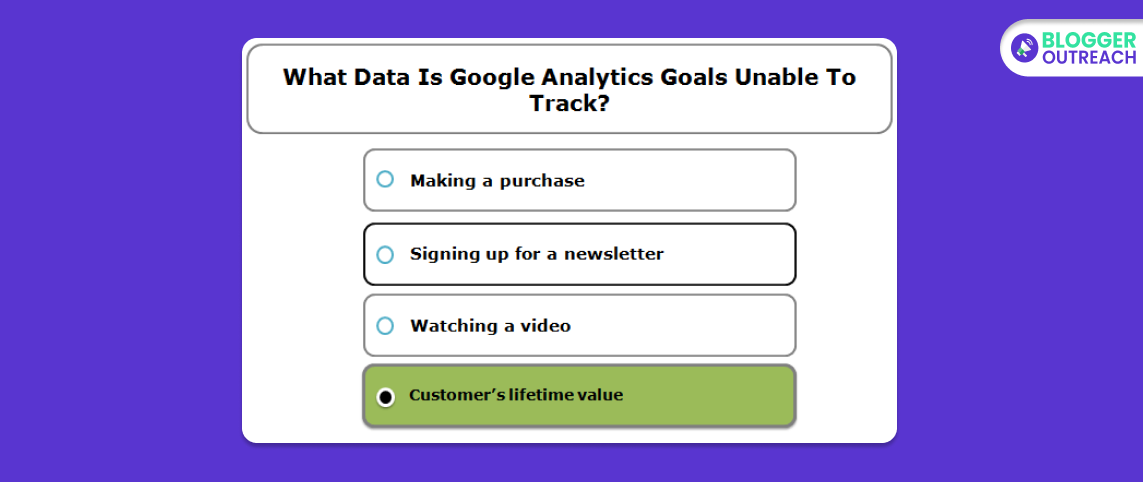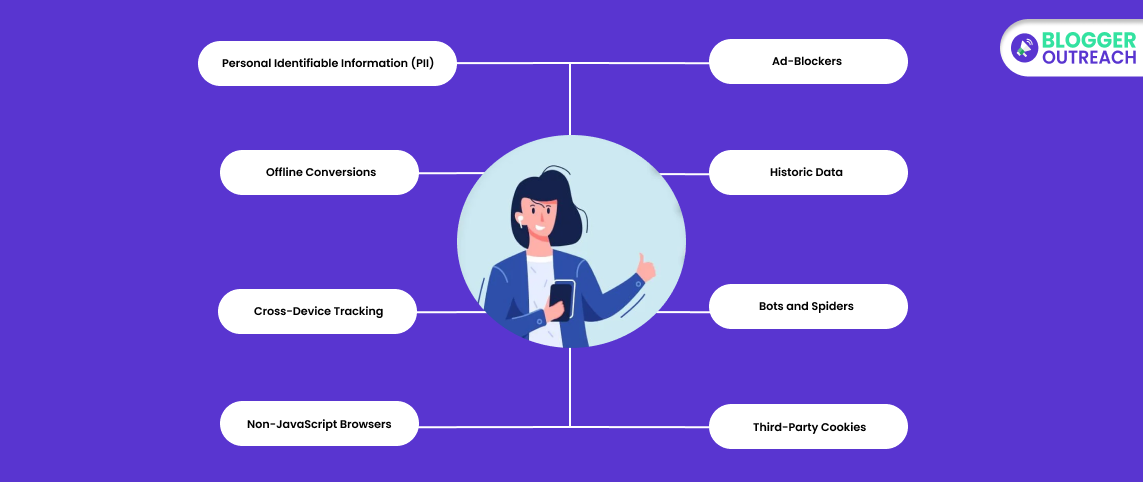Table Of Content
Google Analytics is unable to track customer lifetime value (CLV). Yes. No matter how advanced Google Analytics is, it can’t track CLV.
Now, what is customers’ lifetime value? Why is Google unable to measure customer’s lifetime value? Are there any other factors that Google is unable to track?
If you’re someone from this digital marketing arena, this question must have troubled you at some point in your career.
Moreover, if you are a newbie, you’ll surely get this question at any point of your career.
This article will clarify all your doubts. So, without taking much time, let’s get started.
What Data Is Google Analytics Goals Unable To Track?

The answer to the above question is “Customer’s lifetime value.” This report lets you understand how the value of many users to your business and this is based on lifetime performance.
The reason why Google Analytics is unable to track this data is that it is not a complete metric but just a number. However, this value is very important for marketers because it helps to know the proper understanding of the investment returns.
What Is A Customer’s Lifetime Value (CLV)?
A customer’s lifetime value is the expected amount they will spend with your brand. CLV reflects the overall customer relationship, trust, and brand loyalty. The stronger the relationship, and the trust, the higher the chances of purchasing a product.
Importance Of Customer’s Lifetime Value
Customer lifetime value is one of the most significant eCommerce metrics. It presents a view of the market and its economic viability. In short, this metric will help you to find short-term and long-term marketing plans that describe a proper understanding of the return on investment (ROI).
Moreover, this metric teaches marketers to spend less time acquiring customers with less investment. Customers are the first priority of every business because they are a means of conversion for businesses.
Some Of The Major Reasons Why A Customer’s Lifetime Value (CLV) Matters Because Of The Following Reasons:
- Improves profitability overall.
- Aids in the judgment of the product quality.
- Managing the efficacy of marketing strategies.
- Measurement of customer loyalty
- Helps to manage customer segmentation.
Why Can’t Google Analytics Measure a Customer’s Lifetime Value?
It’s common sense that you can’t derive value from a customer through some analytics. This is because Analytics can NOT track:
- User emotions or thoughts, and cannot track the exact number of visitors to your website.
- User loyalty or how often users return to the website.
- How satisfied customers are with their purchases.
Google Analytics can provide important information to help you better understand user behaviour and website performance, but it can’t tell you everything.
Other Data Google Analytics Can’t Track

Apart from the customer’s lifetime value, there are certain limitations of Google Analytics.
Let’s explore these limitations in simple terms.
1. Personal Identifiable Information (PII)
Google Analytics respects user privacy and doesn’t collect personal data like names, email addresses, or phone numbers. It focuses on aggregate data to protect user identities.
2. Offline Conversions
If someone learns about your business through offline channels, like a phone call or a brochure, and later visits your website, Google Analytics can’t directly connect these dots. Offline actions often remain outside its scope.
3. Cross-Device Tracking
Google Analytics may struggle to track users across different devices seamlessly. If someone starts on a desktop and switches to a mobile device, it can be challenging to attribute their actions accurately.
4. Non-JavaScript Browsers
GA relies on JavaScript tracking, so users with JavaScript disabled won’t be tracked effectively. Their interactions may go unnoticed.
5. Ad-Blockers
Users who employ ad-blockers can hinder GA’s tracking capabilities. This can lead to an underestimation of your site’s traffic and interactions.
6. Historic Data
Google Analytics starts collecting data from the moment you set it up. It doesn’t have access to historical data from before its installation. Consequently, you can’t view past website performance.
7. Bots And Spiders
Google Analytics isn’t foolproof when it comes to distinguishing between genuine users and bots or web crawlers. Some bots can inflate your visitor count and skew your data.
8. Third-Party Cookies
GA relies on third-party cookies for tracking. However, users who block third-party cookies in their browsers may not be tracked accurately or at all.
Winding Up!
At this point, you get a clear idea that Google Analytics can’t track a Customer’s lifetime value. Moreover, we have also covered different facets of Customer’s lifetime value.
We hope you got your answer. Furthermore, if you have any other doubts, feel free to reach out to us.
Read Also:








